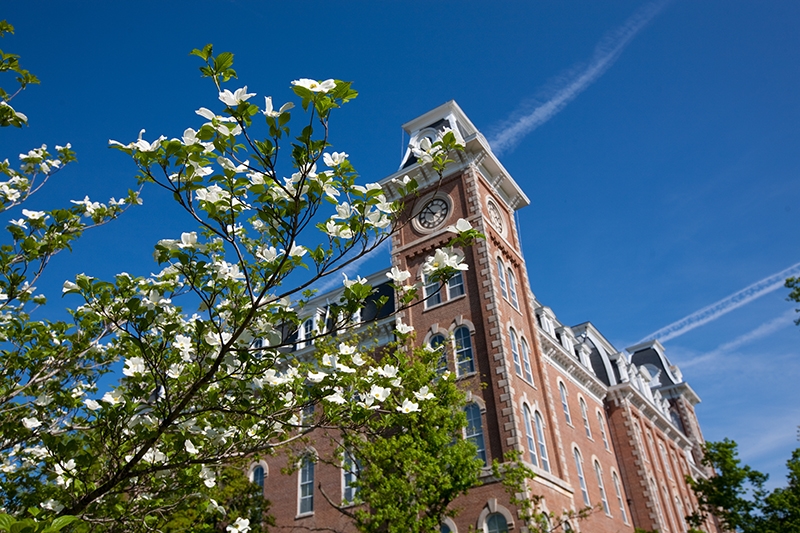The first Earth Day in 1970 launched a wave of action, including the passage of landmark environmental laws in the United States. National recognition of the interdependence of the health and well-being of the people and economy of the United States with the health of our ecosystem culminated in creation of the U.S. Environmental Protection Agency in December 1970.
The Clean Air Act, Clean Water Act and Endangered Species Act emerged from the collective will of participants in the first global Earth Day. Many countries soon adopted similar laws as the United States led by example. Earth Day is widely recognized as the largest secular observance in the world, celebrated by more than a billion people every year as a day for humanity to protect our common home, and to recommit ourselves to restoring and protecting the home of our children.
With COVID-19 upon us, however, Earth Day on the U of A campus today, Wednesday, April 22, looks much different than what had been envisioned. The environmental programs and activities that the University of Arkansas usually hosts this week have been modified or postponed. Rather, this year the university community will celebrate together, apart. This Earth Day, students, faculty and staff are invited to join together from your individual homes to celebrate our common home. Members of campus will engage in collective actions apart, including participating in webinars, walking dogs, picking up trash, riding bicycles, and trying to stay healthy and involved during this challenging time.
"While the current pandemic prevents us from gathering to mark the 50th anniversary of Earth Day, we can still celebrate it nonetheless — chiefly through our actions," said Chancellor Joseph Steinmetz. "This year's theme is climate action, and the University of Arkansas remains deeply committed to advancing research and leading by example. We've set ambitious goals for being greenhouse gas neutral by 2040 through our Climate Action Plan — and I'd like to see us reach those even sooner and think we can do it by 2030. I am committed to meeting those goals because the health and wellness of our community depends upon it."
The best way for U of A affiliates to stay connected with environmental opportunities within our community is the Office for Sustainability email list. Usually the Office for Sustainability sends out weekly emails that summarize job and volunteer opportunities, but this week will include a summary email each morning that has fun facts, great reads, inspiring videos, social media competitions, and links to national Earth Day livestreams.
"We are rediscovering our connections and commitments to our communities through this shared experience" said Marty Matlock, executive director of the Resiliency Center. "Our roles as scholars have often focused on learning and teaching; we are now called to do. The COVID-19 virus is an acute threat to the health of this generation. Climate change is an acute threat to the next generation, our children and grandchildren. This Earth Day we must resolve to rebuild our economy in a way that protects our common health and well-being."
"At the Office for Sustainability, we spend our time thinking about how to live more responsibly within the limited resources available to us," said Eric Boles, director of the Office for Sustainability. "We have found that the most simple solution is living more simply. Doing more with less is the foundation of sustainability. Amazing technological solutions exist and continue to emerge, but there is no substitute for living with intention and appreciating the things we have. These are challenging times and we're all in this together."
About the Office for Sustainability: The mission of the University of Arkansas Office for Sustainability is to motivate, facilitate, and coordinate responsible practices through partnerships with students, faculty, and staff across all campus departments. The Office for Sustainability uses the campus as a living laboratory by overseeing the implementation of the University of Arkansas environmental goals. These programs are part of the UA Resiliency Center, hosted by the Fay Jones School of Architecture and Design, and are supported by UA Facilities Management.
Contacts
Marty Matlock, executive director
Resiliency Center
479-575-6712, mmatlock@uark.edu
Eric Boles, director
Office for Sustainability
479-575-2405, eboles@uark.edu
